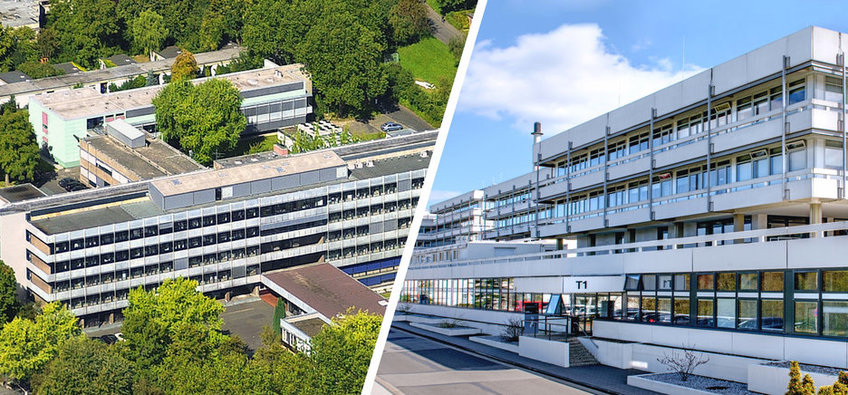
How do nerve cells communicate with each other? How does a complex organism develops from a single egg cell? How does the cell solve logistic task? Or how does an organism regenerate? Scientists at our institute are on the trail towards unraveling the molecular processes that control and regulate complex life processes. However, observing these processes is not an easy feat. They take place in the nanocosmos of the cell and, therefore, are invisible to the eye. Standard microscopes can be used to detect bacteria or to observe individual body cells. But we can hardly find out anything about what is going on deep inside living cells.
One focus of our research work is thus to develop special methods that allow insights into the world of molecules. Ultra-high resolution fluorescence microscopy, nuclear magnetic resonance spectroscopy, cryo-electron microscopy, and computer simulations are some of the methods that are successfully used to take a close look at proteins– the tiny nanomachines of living cells. The aim is to uncover the tricks that proteins use to perform their many functions in the cell, for example as molecular motors, chemical factories, photocells, or sensors. Our researchers are also developing novel experimental tools based on short, laser-induced electron pulses to study the structural and electronic dynamics in solids, nanostructures, and surfaces.
Scientists here are investigating how the blueprints for proteins are first put into a readable format and are unraveling how the cellular protein factories – the ribosomes – work. Only when built correctly proteins can successfully fulfill their tasks in the cell. Researchers at our institute are further investigating in detail how quality control works in protein synthesis.
As a further focus, we want to elucidate fundamental molecular and cellular processes in the nervous system and decipher how pathological disorders arise. Important questions that the researchers are investigating are: What mechanisms control brain development? What role do channel proteins play in the transmission of signals within the cell and in the development of cancer? What are the molecular bases of learning and memory?
Similarly, many phenomena in inanimate nature can be traced back to molecular processes. For example, many molecules, radicals, and atoms in the atmosphere react with each other after being generated and excited by solar radiation. Investigating their inner molecular dynamics is another branch of research at our institute.
More about our research may be found here.
The MPI for Multidisciplinary Sciences was founded on January 1, 2022 merging two existing Göttingen institutes, the MPI for Biophysical Chemistry and the MPI for Experimental Medicine. With this fusion, the institute brings together basic research in the natural sciences and medicine. The two locations of the institutes remain as City Campus and Fassberg Campus.
For the MPI for Biophysical Chemistry, the merger marks the repetition of a central event in its almost 50-year history. This goes back to the former Kaiser Wilhelm Institute for Physical Chemistry in Berlin, which Karl Friedrich Bonhoeffer rebuilt in 1949 as the MPI for Physical Chemistry in Göttingen. The physical chemist Karl Friedrich Bonhoeffer pursued a strongly interdisciplinary approach at an early stage and also applied physical-chemical methods to biological problems. Initiated by Nobel laureate Manfred Eigen, today's MPI for Biophysical Chemistry was founded in 1971 by merging the MPI for Physical Chemistry with the MPI for Spectroscopy, which was also located in Göttingen at the time. Manfred Eigen's vision was to investigate complex life processes with biological, chemical and physical methods at the newly founded institute.
The MPI of Experimental Medicine was founded in 1947 as Medizinische Forschungsanstalt of the still existing Kaiser Wilhelm Society and was integrated into the newly founded MPS in 1948. Since 1965, it has been located under its current name in Hermann-Rein-Straße, opposite the University Medical Center Göttingen. Since the late 1990s, the institute’s research focuses on neuroscience, with a particular emphasis on both basic molecular and cellular processes in the nervous system and related pathological disorders.
Academic Europe, the European career network for Academics, Researchers and Scientists